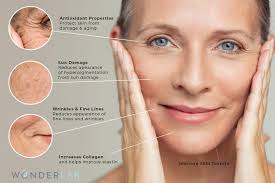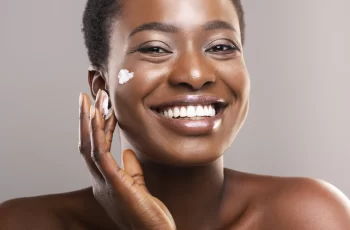Retinol Skin Care Benefits – Why is Retinol Good for Skin?
Retinol, maybe you’ve heard of it, maybe you even use it in your skincare routine, or maybe you have no idea why you should use retinol at all. That’s why I decided to provide a simple explanation of the benefits of this amazing ingredient and why you should use it!
Why Should I Use Retinol?
Retinol is extremely beneficial for the skin and it multitasks better than a parent of three kids! If you have skin issues like B, enlarged pores, fine lines, wrinkles, uneven skin tone, uneven skin texture. Believe it or not, retinol
can solve all of these problems!
You’ll notice a dramatic change in your skin after about 4 weeks of use, and the results will be even more noticeable if you continue to use it regularly after 3 months.
Your skin will feel firmer, plumper, and look younger. Fine lines and wrinkles are smoothed out, and skin looks smoother overall. Lastly, any skin pigmentation caused by sun damage or acne scars will be visibly reduced. Yes, it really is that good! What is Retinol? Retinol is a form of vitamin A that can boost skin renewal when you incorporate it into your skin care routine. By helping the skin renew itself, you’ll notice your skin has a healthy glow all year round, as dead skin cells tend to linger on the surface of the skin, giving it a dull, matte appearance. Retinol also penetrates the lower layers of the skin and supports collagen production, which is essential for maintaining youthful and healthy skin. After the age of 30, collagen production begins to decline. As discouraging as it may sound, retinol is the first step to addressing this problem, and the sooner you incorporate it into your daily routine, the more preventative benefits you will reap! Other issues such as sun damage have also been reported to be
significantly reduced. When it comes to sunburn, remember that you can’t make it go away completely, but over time, pigmentation will lighten and be less noticeable to the naked eye.
When should I use retinol?
There are a lot of conflicting opinions and information on the internet regarding many topics regarding retinol! The most common claim is that using retinol during the day can actually speed up skin aging and even prematurely
and may cause skin irritation and possibly burns.
This is not true, the only possible problem with using retinol during the day is that sunlight can reduce the effectiveness of the retinol and render it ineffective! To really reap the benefits, it is best to use it at night before bed.
How to Use Retinol?
Retinol is a complex product, mainly because it comes in varying strengths and can cause skin reactions if used in excess. This is the best way to introduce retinol into your daily routine without causing irritation, burning, or discomfort.
Start by choosing a lower retinol content, such as 0.3%. Use it twice a week in the evening for the first two weeks. You can then use it every other night for the next two weeks. Over the next few weeks, your skin will get used to using the product every night. As your skin gets used to retinol, the percentage can be increased to 0.5%, 0.6%, 1%, and 2%.
If you want to introduce retinol without any reactions, it is best to follow this routine. It is one of the most confusing and complex ingredients, but once you have a good starting point for using it, there are few problems.
Come back soon!
Can I use retinol if I have acne?
Retinol is a very powerful ingredient that opens up pores, promotes skin renewal, and supports cell turnover. All of this helps make blemish-prone skin look healthy and easier to care for while fighting blemishes. If you follow the steps above, you will notice a significant reduction in spots or blemishes.
Retinol also helps eliminate hyperpigmentation left over from acne scars, and after three months of use, you will no longer notice the hyperpigmentation with the naked eye.
All skin types will see noticeable differences when using retinol, including signs of aging, sun damage, uneven skin texture, and more. If you are still concerned that retinol is not working for your skin, talk to your family doctor or dermatologist for professional advice.
If you are pregnant, nursing, or taking medications that cannot be taken with vitamin A, you may not be able to incorporate retinol into your daily routine. Can I use AHAs and BHAs with retinol?
There is a lot of conflicting information about using liquid exfoliants like AHAs or BHAs with retinol. Many people claim that using both products can cause skin stress and adverse reactions. I can put your mind at ease by telling you that this is not the case.
Both products work on different layers of the skin: Retinol affects the movement of cells in the lower layers of the skin, while liquid exfoliants like AHAs and BAHs remove dead skin cells in the upper layers of the skin.
Because they don’t compete with each other or overload your skin with exfoliating formulas, they actually form a powerful duo that work together to keep your skin looking healthy and radiant.
That concludes my review of Retinol. Hopefully, you now have a better understanding and appreciation of this powerful (albeit complex) ingredient.
DQH Can I use salicylic acid first and then vitamin C?
It’s easy to create a skincare routine, but knowing how to use it is another thing entirely. In most cases, if you’re not getting the desired skin results, it could be due to the layering of conflicting ingredients. So, is it possible that salicylic acid and vitamin C are such ingredients? Or are these active ingredients the duo that’s been missing from your skincare routine? If you want answers, stick around because today we are going to explain the benefits of salicylic acid and vitamin C and how they can be used in your daily life.
What are the benefits of salicylic acid for skin?
Salicylic acid is one of the most commonly used beta hydroxy acids and is favored by many people with oily, acne-prone skin. This acid is derived from willow bark, and unlike its water-soluble relatives (called alpha-hydroxy acids), salicylic acid is oil-soluble, which means it can penetrate deeper into the lower layers of the skin. Once it reaches the lower layers, it can help unclog pores of excess sebum, dirt, bacteria, debris, and impurities. This results in clearer skin tones and greater definition.
Not only does salicylic acid benefit the underlying layers, but the outer surface of the skin benefits as well. When applied to the skin, salicylic acid removes the buildup of dead skin cells. This is accomplished by breaking the bonds that hold dead cells to the surface. Over time, this can cause the complexion to look dull and prone to acne, blackheads, and other blemishes.
If you’d like to learn more about salicylic acid and how it can improve your skin, check out this dedicated blog post from a beauty insider.
What are the benefits of vitamin C for skin?
Vitamin C is considered one of the most powerful antioxidants, which means it is very effective at fighting free radicals and preventing them from causing further skin damage. Examples of free radicals include pollution, central heating, UV rays and harsh climate. They attack proteins, fats and cell membranes as soon as they come into contact with the skin, causing signs of premature aging such as fine lines and wrinkles as well as hyperpigmentation, flaky patches of skin and loss of elasticity.
Many people usually prefer to use vitamin C in their morning routine as this ingredient gives the complexion a radiant glow. You’ll also find that vitamin C can target areas of hyperpigmentation, plumping the skin and reducing the appearance of fine lines and wrinkles.
The thing about vitamin C is that there are a lot of outdated studies going back to the 1950s that describe vitamin C as an unstable skin component. Thanks to improvements in modern technology, this is no longer the case as all products now contain a stable form of vitamin C.
Visit The Beauty Insider to learn more about vitamin C. So please check out our blog post.
Can I use salicylic acid first and then vitamin C?
Yes, you absolutely can. In fact, it’s thought that using salicylic acid before using vitamin C ensures it penetrates faster and works faster.
This is an efficient way to utilize two power sources, and the reason has to do with pH. For example, the skin’s natural pH is about 4.7, making it slightly acidic. Salicylic acid and vitamin C are also both acidic, and you’ll find that vitamin C is absorbed quickly into the skin. Therefore, using salicylic acid beforehand can increase the acidity of the skin and allow vitamin C to penetrate into the skin faster.
While this is considered an effective way to combine two powerful ingredients, you need to be aware of your skin type and how it reacts to certain active ingredients. Even people with perfect, normal skin can experience skin sensitivity and irritation. Therefore, always consult a doctor or dermatologist before using any new products on your skin.
It’s also important to follow skin application rules. In this case, you need to use the product correctly to ensure you get the best results for your skin. If you’re not sure what I mean, the basic rule for skin is to start with the thinnest consistency and work your way up to the thickest consistency. This prevents a barrier from forming on the surface, preventing other active ingredients from penetrating the skin.
Can I use salicylic acid at night and vitamin C in the morning?
Yes, absolutely, this is considered the most effective way to get returns without any adverse side effects. This is because there is enough time between applications to ensure that the skin’s pH levels return to balance.
You’ll also find that Vitamin C is rich in antioxidants and is perfect for use in the morning to ensure your skin is protected and looking its healthiest. Due to the small size of salicylic acid molecules, it is an acid that is able to reach the deepest parts of the skin. While this is effective at keeping skin clear, it also increases the risk of irritation and photosensitivity. Therefore, many people prefer to use powerful BHAs in their evening routine without exposure to UV rays, pollution, or harsh weather.
Warning: If you avoid using sunscreen every day, none of these ingredients will do what your skin needs. The combination of chemical peels and powerful ingredients increases the risk of further damage to the skin’s surface. Use SPF 50 every day to keep your skin protected and your lipid barrier healthy, even on cloudy days, keeping your skin in top condition.



